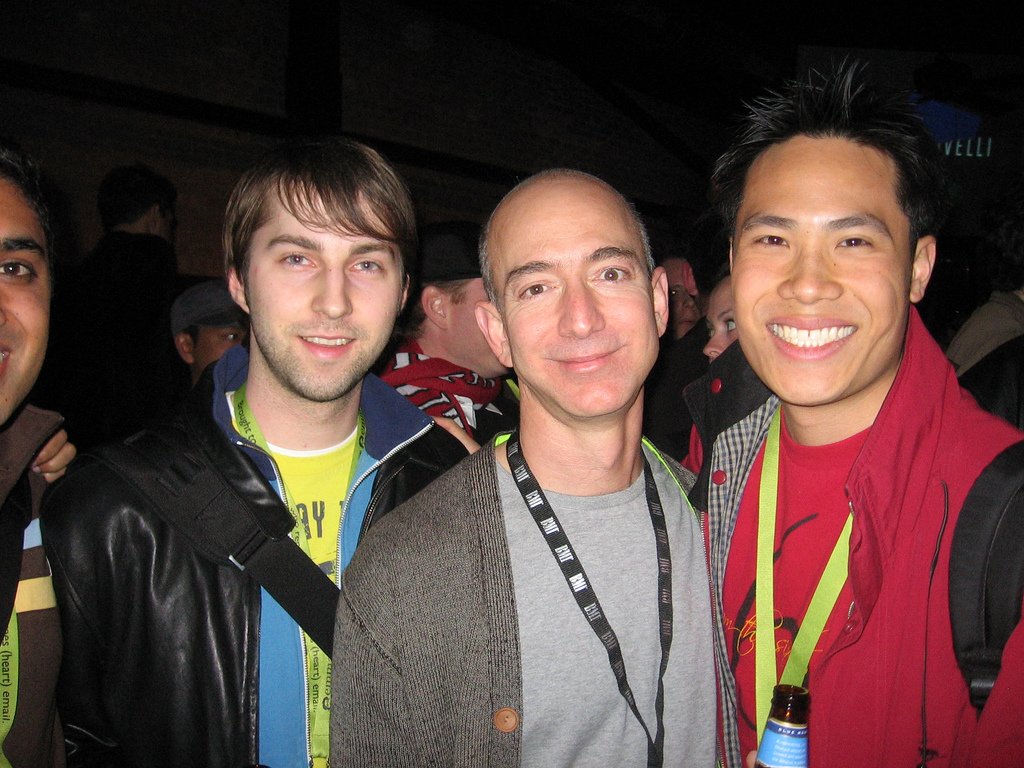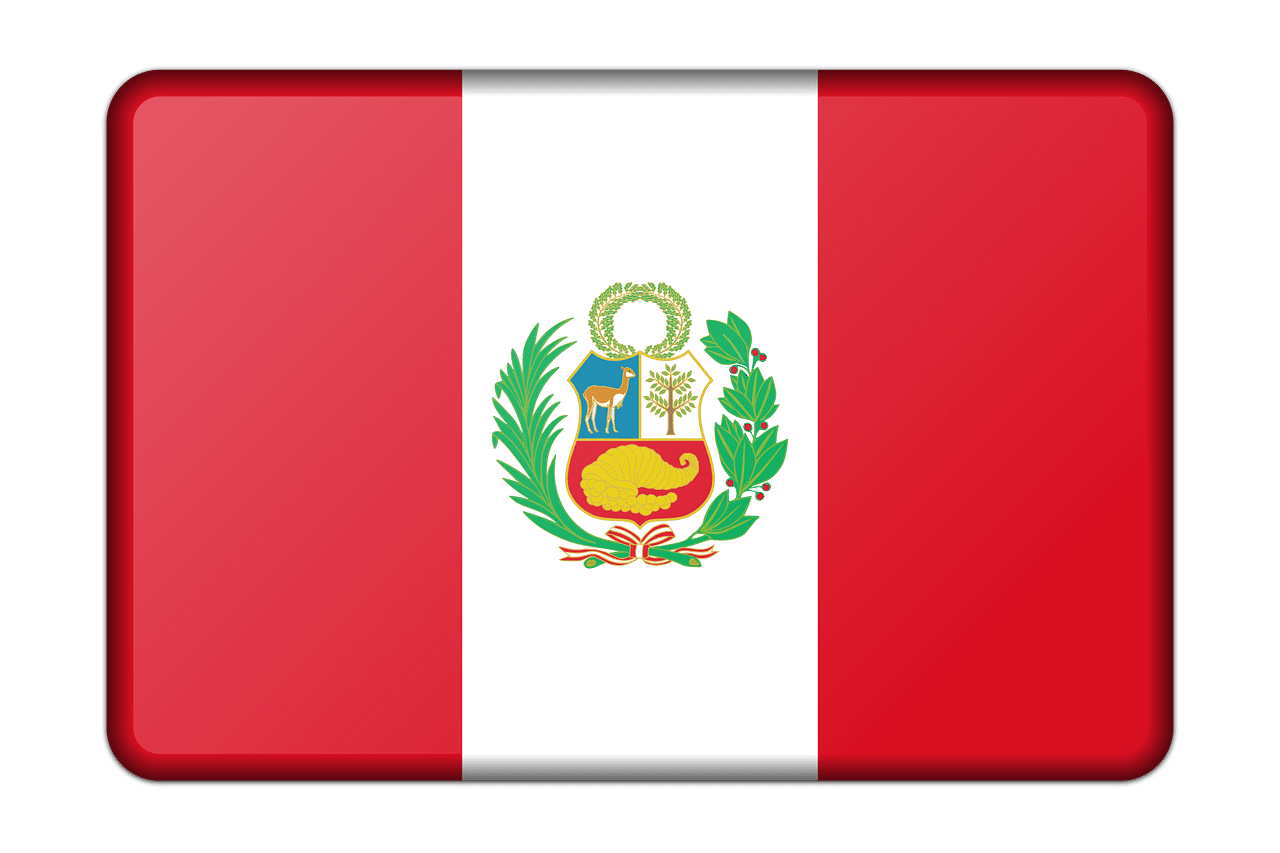Amazon’s Jeff Bezos is the richest man in history, but after heavy criticism, he announced a major philanthropic organization.
When Bill Gates, Warren Buffett, and Mark Zuckerberg had but a fraction of the net worth that Jeff Bezos currently has, they established charitable foundations. Bezos, however, was still hyper-focused on his business and not philanthrophy. Arguably, his focus paid off as Amazon became only the second company in history to earn a valuation of one trillion dollars. In fact, is the meteoric rise of Amazon’s stock price that contributed to Bezos’s personal wealth milestone. For businessmen like Bezos, there is no such thing as “enough.” In fact, he arguably has his sights set on conquering private space travel next.
Being the richest man in the universe is tough in the current political climate of resurgent populism and socialism. Being him while also not having a philanthropic presence is what the kids call “a bad look.” In an effort to help address this public relations issue, Bezos solicited Twitter for ideas about areas where he could invest philanthropically. This week, the Amazon founder finally announced that the first of his philanthropic dollars will go to fight homelessness and build not-for-profit schools. Of course, like anything today, this has been met with controversy, specifically from those who say he’s not doing enough. Let’s take a deeper look.
The Bezos Day One Fund
Business professionals love to reduce their philosophies to catchphrases that seem more akin to a motivational poster featuring a cat in a predicament than the CEO of a trillion-dollar company. Bezos’s catchphrase is to “threat every day like it’s day one.” Naturally, this doesn’t mean filing incorporation papers or signing a lease for office space each day. What he’s really saying is to approach each work day with the same level of enthusiasm you had when you started. Thus, the $2 billion Jeff Bezos is committing to philanthropy will come from the Bezos Day One Fund, which is actually two separate funds.
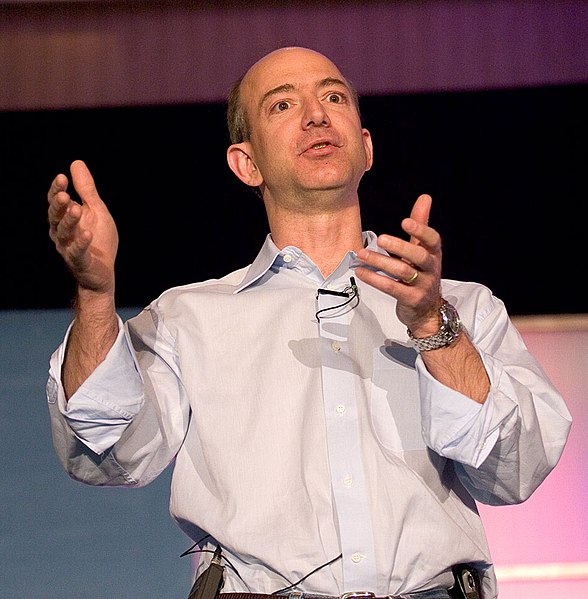
Credit: Wikimedia Commons, James Duncan Davidson
There is the Day One Families Fund, which will offer grants to already-established civic organizations that serve homeless populations. Their “vision statement” is the same as Mary’s Place in Seattle (where Amazon is headquartered): No child sleeps outside. Essentially, they will funnel money to groups already doing the work in their communities. The second effort is the Day One Academies Fund, which is a much more interesting effort. Bezos pledges to “launch and operate a network of high-quality, full-scholarship, Montessori-inspired preschools in underserved communities.” Recent efforts by philanthropists to support education in New Jersey had inconclusive results. But that was a very different effort than building and operating schools of their own.
Why Is This Controversial?
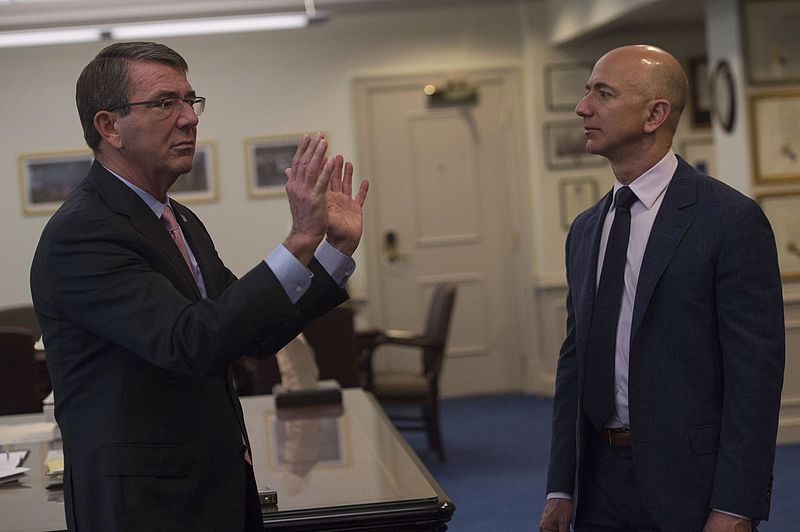
Credit: DoD, Public Domain
As mentioned above, after decades of a growing wealth gap between high-income and middle-class, low-income people the super-rich are not very popular. Senator Bernie Sanders, an independent from Vermont who sought the 2016 Democratic nomination for president, frequently uses Jeff Bezos as his verbal punching bag. This month Sen. Sanders lambasted Bezos in a tweet for earning more in “ten seconds…than the median employee of Amazon makes in an entire year.” He even proposed a restriction on the social safety net for working people, calling it corporate welfare because wages are too low. He introduced a bill (that has no true chance of going anywhere) called the Stop Bad Employers by Zeroing Out Subsidies Act, or Stop BEZOS.
Conditions for workers in Amazon’s warehouses in the U.S. and the U.K. are also under scrutiny. Reports suggest that supervisors are so obsessed with productivity that workers fear leaving the floor even to use the restroom. They also fought a tax in Seattle meant to address their homelessness epidemic with affordable housing. Finally, others are just angry that he’s offering up just $2 billion, or a little more than one percent of his wealth, for charity. Though, it should be noted that the vast majority of Bezos’s estimated $163 billion wealth is subject to the whims of the market. Still, some see a man with wealth like Bezos and see a person who, they believe, could “fix” the world were it not for "his greed."
So, What’s the Real Story?
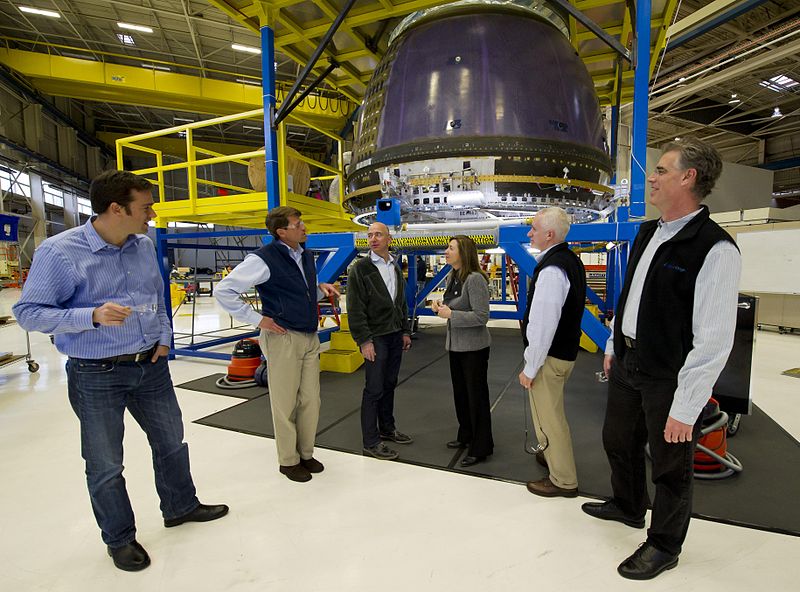
Credit: NASA, Public Domain
Looking past the personal and political rancor surrounding everything Amazon and Bezos does today, this is a tepid first step for ‘Mr. Day One.’ The two most prolific philanthropists today, Bill Gates and Warren Buffett, have about half of the net worth that Bezos does. Even the “new money” billionaires like Mark Zuckerberg have given away much more of their wealth than Bezos. Yet, Zuckerberg donated to New Jersey schools and arguably it didn’t help. So, if Bezos is taking it slow in order to ensure that his philanthropic efforts don’t fail that’s actually good business. Plus, it won’t hurt his image if in a year or two he increases the money going to programs that have had success by a factor of ten. If this is not the first step in a larger philanthropic strategy, then perhaps Bezos’s critics are worth listening to.
Still, there is reason to believe that despite his lack of hair, he’s not actually Lex Luthor and may act on the potential good he can do. One example is The Washington Post, which Bezos purchased in 2013. At the time it was a struggling newspaper in a dying industry. This was not a “smart” investment, but one Bezos said he felt was almost a civic duty. Thanks in part to the rancorous times, the Post is profitable and expanding. If not, some experts believed that Bezos might turn the company into a non-profit, doing journalism as a public service. Though, today, it's clear he's treating it like a "real" business.
At Least We’re Talking About Helping.

Credit: PBS
Even in a worst-case scenario with the Day One Fund, at least some on-the-ground charity organizations will get some cash they wouldn’t have otherwise. While it might be fair to criticize Amazon or Bezos, any act of giving is ultimately a good thing especially for the people it directly helps. So much of our approach to talking about charity or philanthropy is centered around how it looks to others. The one lesson we can learn from Bezos is to adopt a more results-focused approach to the things we do, even charity. Instead of looking at charitable giving as just another tax line-item, look at it as helping your neighbors.
This year, the late Mr. Rogers enjoyed something of a renaissance because of a documentary about his career and a Tom Hanks biopic now filming. A key tenet of his ethos was that there is no greater demonstration of love than helping people. He famously quoted his mother’s advice that in the wake of tragedy you should remember to “look for the helpers.” Well, take that advice a step further and do your best to be one of the helpers.
What do you think? Share your thoughts, reactions, and experiences in the comments below. Don’t forget to share the article online if you liked it!
Related Article: The History of Drones and What Made Their Popularity Take Off
